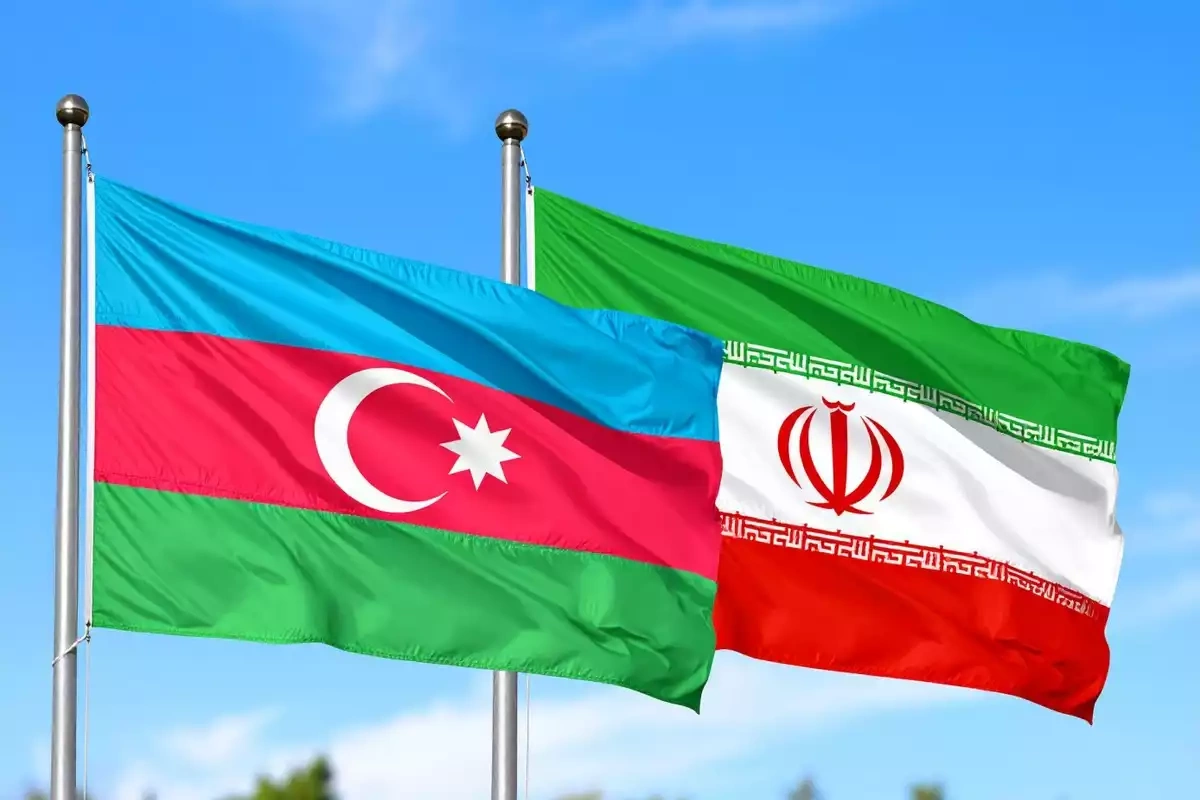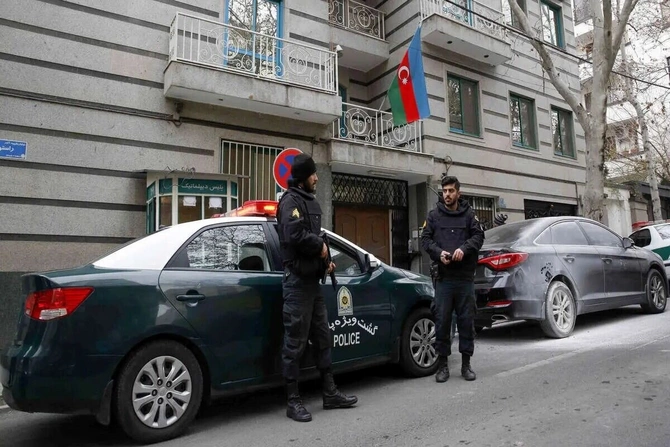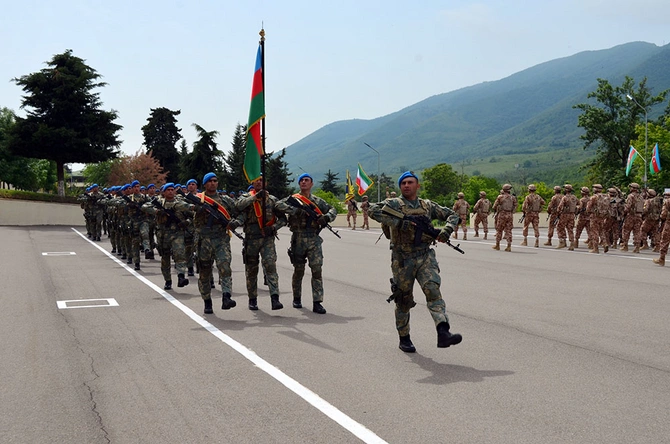
By Tural Heybatov
On the morning of May 21, the death sentence was carried out in Tehran against Yasin Hoseinzadeh, a citizen of the Islamic Republic of Iran who carried out an armed assault on the Azerbaijani Embassy in the Iranian capital. His execution marks a milestone in Azerbaijan’s unwavering pursuit of justice and sends a clear message that crimes targeting its sovereignty and citizens will not go unpunished.
The attack took place on January 27, 2023, at approximately 8:30 a.m., when the assailant, armed with an assault rifle and carrying multiple magazines, stormed the Azerbaijani diplomatic mission in central Tehran. The attack resulted in the death of Orkhan Asgarov, the head of the embassy's security service, and left two other staff members injured. Beyond its human toll, the assault symbolized the culmination of years of covert anti-Azerbaijani sentiment within certain circles in Iran.

Azerbaijani Embassy in Iran / Photo: Tehran Times
The investigation lasted over two years, during which various attempts were made to frame the incident as a personal dispute rather than a calculated terrorist act. These narratives failed to withstand scrutiny, especially given the suspiciously delayed police response, the attacker’s media interviews on the same day, and the premature declaration of his mental instability.
From the outset, President Ilham Aliyev made it clear that Azerbaijan would not accept any cover-up or alternative version of events. “We demand a prompt investigation into this terrorist act and swift punishment for the terrorists. Attacks on diplomatic missions are unacceptable,” he declared in a statement posted on his official X (formerly Twitter) account shortly after the incident.
In a televised interview, President Aliyev emphasized that all signs pointed to a coordinated terrorist act. “Not a single police vehicle arrived at the scene for nearly 40 minutes, despite the attack taking place in the city center. The attacker was declared mentally ill the very next day without a proper medical examination. He even gave an interview to the media the day of the attack. These facts speak volumes,” the president stated, reaffirming that Azerbaijan would press its demands until justice was done.
The attack did not occur in a vacuum. For decades, relations between Baku and Tehran were strained, particularly during the years of Armenian occupation of Azerbaijani territories. Iran’s de facto support for the occupation-through logistics, trade, and silent backing of separatist elements-undermined trust between the two neighbors. During the 44-day Patriotic War, when Georgia denied transit for military supplies to Armenia, those same supplies were routed through Iranian territory. There is also documented evidence that Iranian forces attempted to obstruct the Azerbaijani army’s advances during the conflict.
After Azerbaijan restored its territorial integrity, Iranian trucks continued to make unauthorized deliveries to separatists in Karabakh. When Baku intervened to stop these actions, Tehran responded with hostile rhetoric and provocative military exercises along the border, including drills simulating the crossing of the Aras River.
The embassy attack became the boiling point. Iran’s attempts to downplay the incident as a domestic dispute only intensified anger in Azerbaijan. Implausible theories from Iranian law enforcement failed to convince either Baku or the international community. The apparent reluctance to acknowledge the political nature of the attack raised further suspicions.
Eventually, under mounting diplomatic pressure and consistent demands from Azerbaijan, Iran’s judicial authorities concluded the investigation. Although the charges did not explicitly classify the crime as terrorism, the prosecutor demanded the death penalty for deliberate murder, illegal possession of firearms and ammunition, and disturbing public order. The sentence was executed, delivering what Azerbaijan sees as a long-overdue measure of justice.
This development stands as a clear diplomatic victory for Baku. It is a testament to the Azerbaijani government’s resolve to defend its citizens, its institutions, and the sanctity of international law. Azerbaijan's consistent and principled approach ensured that the matter could not be swept under the rug.
This is not the only case where Baku has shown such determination. Following the downing of an AZAL passenger aircraft by Russian air defense systems over the North Caucasus in December 2024, Azerbaijan made it clear that it would pursue justice until those responsible are held accountable. The issue remains on Baku’s diplomatic agenda, and calls for accountability and compensation will persist until fully addressed.
While quiet tensions with Moscow remain, the confrontation with Tehran appears to be easing. The recent visit of newly elected Iranian President Masoud Pezeshkian to Baku marked a turning point. The warm interaction between the two leaders and their joint statements signaled a desire to reset bilateral ties and restore mutual understanding between long-standing neighbors.

Photo: The Defense Ministry of Azerbaijan
Underscoring this shift was the conclusion of unprecedented joint military drills, “Araz-2025,” held on May 21 on territories liberated from Armenian occupation. The exercises, conducted on Azerbaijani soil with Iran’s participation, symbolized a strategic recalibration by Tehran and a new chapter in regional cooperation. Notably, Hikmet Hajiyev, Assistant to the President of Azerbaijan, also paid a recent visit to Tehran, where he held high-level talks with senior Iranian officials, further signaling a mutual commitment to strengthening bilateral relations and ensuring regional stability.
Once again, Baku has proven it is open to dialogue-but never at the expense of its sovereignty, dignity, or justice. Azerbaijan’s foreign policy is rooted in pragmatism and a commitment to regional stability, but it is guided by firm principles. The country has demonstrated that while it is ready to turn the page and build constructive relations with its neighbors, it will never allow crimes against its people or attacks on its sovereignty to be forgotten or forgiven without justice being served. The resolution of the Tehran embassy case-achieved through persistence, consistency, and strategic diplomacy-is a powerful testament to this approach. Azerbaijan not only defends its national interests, but also helps shape a regional order based on accountability, mutual respect, and adherence to international norms. The message is clear: Azerbaijan seeks peace and cooperation, but will always respond decisively to injustice, aggression, or duplicity-regardless of where it comes from.
Share on social media